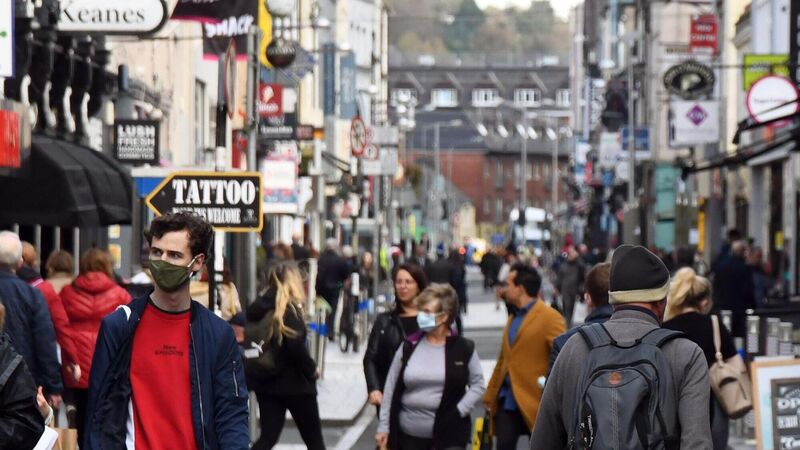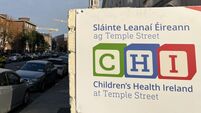UCC professor: 'The science is clear —suppressing Covid-19 is possible'

Professor of Epidemiology at UCC Patricia Kearney said a citizen’s assembly could facilitate discussion on how the country manages coronavirus in the longer term. People on Oliver Plunkett St, Cork. Picture: Denis Minihane
The ‘science is clear’ that Covid-19 can be suppressed and a national conversation is needed to examine the current strategy of living with the virus, a UCC epidemiologist has said.
Professor of Epidemiology at UCC Patricia Kearney said a citizen’s assembly could facilitate discussion on how the country manages Covid-19 in the longer term.
While Covid-19 metrics look encouraging at the moment, with falling daily case numbers and a lower positivity rate, Professor Kearney said the number of people hospitalised and in intensive care with Covid-19 had not fallen and it was “not a time for complacency”.
New cases of infection have fallen below 1,000 per day for the past week although the number of people in hospital remains above 300, with 44 people in intensive care on Monday.
“The crisis that’s facing Europe now may focus minds. Hopefully, we have acted early enough so that our healthcare system isn’t going to be overwhelmed. It looks like some countries in Europe have left it too late,” Professor Kearney said.
Across Europe with uncontrolled community transmission there is no mystery in overwhelming numbers @vonderleyen @MichealMartinTD @simoncoveney let’s learn from Australian experience of outbreak management so that by 2021 we can get to this point @ISAGCOVID19 @NICU_doc_salone https://t.co/TCS9qnBrrq
— Prof Trish Kearney (@TrishCork) October 28, 2020
The re-opening of schools this week could result in a "blip" or rise in Covid-19 cases in the coming weeks but Professor Kearney noted that countries, such as Australia, that succeeded in suppressing the virus did so while keeping schools open.
“They prioritised keeping schools open while managing everything else aggressively,” she said, adding that additional measures included closing land borders and requiring mandatory quarantine for 14 days for domestic and international travellers.
Professor Kearney said there were “no quick solutions”, even if Covid-19 vaccines become available, and that “yo-yoing” up and down restrictions under the government’s ‘Living with Covid’ plan would have longer-term social and economic impacts.
“There is a real danger that we’ll all be sick of this by Christmas and we’ll want things to be eased up and we’ll get the numbers much lower but getting to a low level isn’t enough. The number of cases will just creep back up again,” the UCC academic said.
“Now is an important moment to ask ‘what is our goal?’ What are we aiming for? And how ambitious are we willing to be?” she said.
Professor Kearney, who is a member of the Independent Scientific Advocacy Group (ISAG), has rejected government claims that a ‘Zero Covid’ approach to eliminate the virus was not a realistic option: “Living with the virus is unrealistic. What we’re doing at the moment isn’t working.
“We at least need to have a serious conversation about what the alternatives are and what would be needed in the short, medium and long term to achieve elimination,” she said.
"This is really a political decision,” she added.
The conversation could be opened up, Professor Kearney said, through a citizen’s assembly that would give people a voice and bring together experts in health, economics, and civil liberties among other disciplines.
To adopt a suppression strategy, she said, would require introducing mandatory quarantine for travellers: “The science is clear. We need to open up the conversation about why we can’t have mandatory quarantine and that’s just one element of what is needed”.
“We need isolation facilities; that’s the sort of thing we need if we’re serious about getting rid of Covid-19 completely,” she added.





